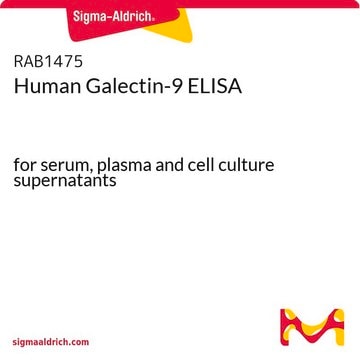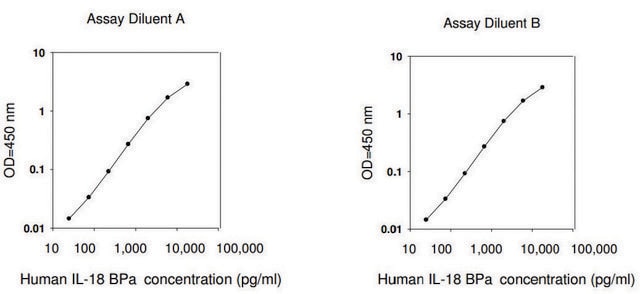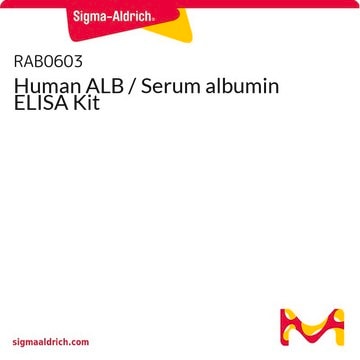推荐产品
物種活性
human
技術
ELISA: suitable
輸入
sample type cell culture supernatant(s)
sample type plasma
sample type serum
assay range
inter-assay cv: <12%
intra-assay cv: <10%
運輸包裝
wet ice
儲存溫度
−20°C
基因資訊
human ... MSMB(4477)
一般說明
The prostate secretory protein of 94 amino acids (PSP94), which is secreted by the prostate gland, is a small, cysteine-rich, and non-glycosylated protein. It is found abundantly in prostatic secretions and is a primary constituent of human semen. Lower expression of the PSP94 gene is observed in prostate cancer. PSP94 acts as a tumor suppressor and curbs metastasis. It also acts as an inhibitor of sperm motility and sperm acrosome reaction. The PSP94 gene is located on the human chromosome at 10q11.22.
應用
For research use only. Not for use in diagnostic procedures.
Please refer to the attached Protocolfor details.
Please refer to the attached Protocolfor details.
其他說明
A sample Certificate of Analysis is available for this product. Please type the word sample in the text box provided for lot number.
訊號詞
Warning
危險聲明
防範說明
危險分類
Met. Corr. 1
儲存類別代碼
8A - Combustible corrosive hazardous materials
閃點(°F)
Not applicable
閃點(°C)
Not applicable
Bhakti R Pathak et al.
Asian journal of andrology, 12(5), 677-689 (2010-08-03)
The prostate secretory protein of 94 amino acids (PSP94) has been shown to interact with cysteine-rich secretory protein 3 (CRISP-3) in human seminal plasma. Interestingly, PSP94 expression is reduced or lost in the majority of the prostate tumours, whereas CRISP-3
Ashwani Kumar et al.
Journal of molecular biology, 397(4), 947-956 (2010-02-27)
Several recent genome-wide association studies have linked the human MSMB gene, encoding prostate secretory protein of 94 residues (PSP94), with prostate cancer susceptibility. PSP94 is one of the most abundant proteins from prostatic secretions and a primary constituent of human
Zhaohui Du et al.
International journal of cancer, 146(7), 1819-1826 (2019-06-22)
Latinos represent <1% of samples analyzed to date in genome-wide association studies of cancer. The clinical value of genetic information in guiding personalized medicine in populations of non-European ancestry will require additional discovery and risk locus characterization efforts across populations.
我们的科学家团队拥有各种研究领域经验,包括生命科学、材料科学、化学合成、色谱、分析及许多其他领域.
联系技术服务部门









